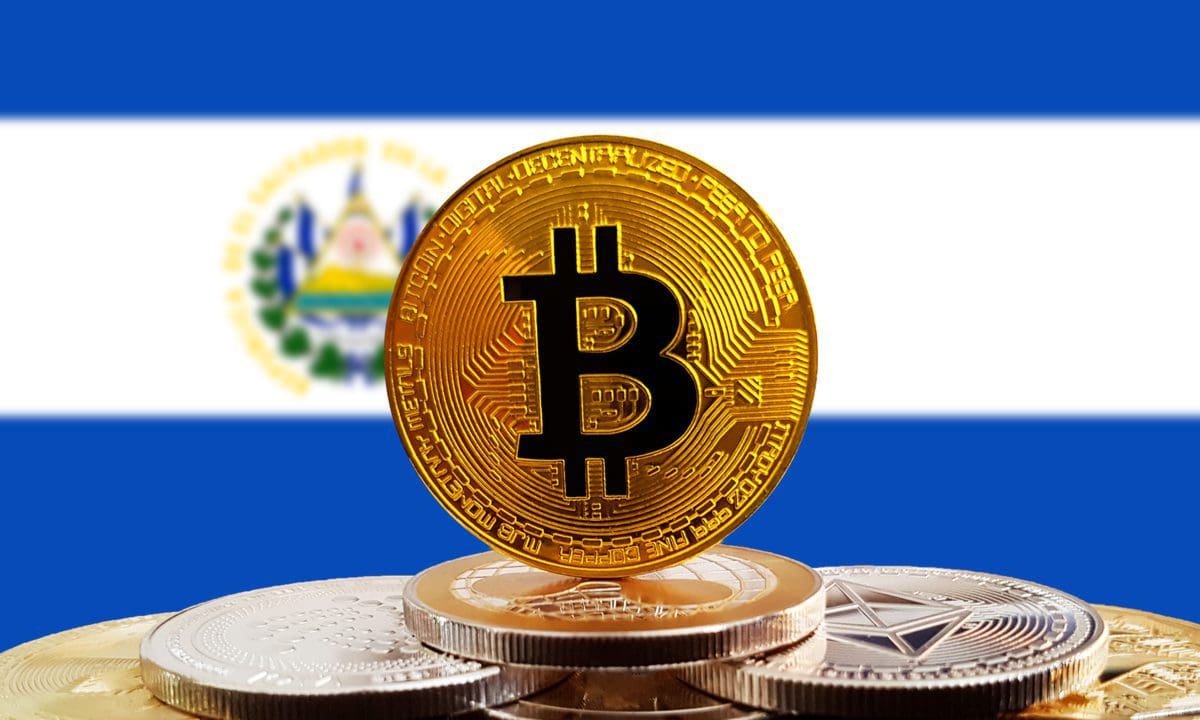Table of Contents
Did you know that more than 120 million people actively use Bitcoin worldwide? In 2025, it has moved far beyond being just a niche experimental digital currency to a global financial force that has continued to challenge traditional money systems. What was formerly a peer-to-peer currency in 2009 is now part of everyday life for millions of people who trade, use it for payment, investment, and also as a store of value.
But this explosive growth has not gone unnoticed by governments. Some countries have chosen to welcome it with open arms, passing clear rules that encourage Bitcoin use. Others remain cautious and a handful have taken the opposite route banning it outright due to concerns over financial stability, money laundering, or loss of monetary control.
In this article, we will take a closer look at the countries where Bitcoin is legal, highlight regions with partial restrictions and examine the broader benefits nations can gain from embracing cryptocurrency.
An Overview of Global Bitcoin Adoption

It is no news that Bitcoin has become part of everyday financial systems in ways that were unimaginable a decade ago and one of the main drivers of this development is its decentralized nature. Unlike traditional currencies controlled by central banks, Bitcoin is operated on a network where transaction is secured by blockchain technology. This makes it appealing in regions with unstable economies, high inflation, or limited access to banking services.
At the same time, government rules have played a decisive role in shaping adoption. Some countries have embraced it while others regulate it as digital assets. Many major events have also affected the legal recognition of bitcoin worldwide. The introduction of Bitcoin Future Trading, the rise of Institutional Investment and the Bitcoin ETFs launched in major economies have all helped legitimate it as part of financial system rather than just a speculative property.
Countries That Support Bitcoin
1. El Salvador

El Salvador became the first country in the world to adopt bitcoin as a legal tender in 2021. Citizens can use it for everyday transactions and taxes. The government has also invested in the bitcoin reserve and has launched projects like “Bitcoin City” to attract global investors and crypto startups.
2. Central African Republic
In 2022, the Central African Republic (CAR) declared Bitcoin as an official currency just like El Salvador. Despite the challenges such as low internet penetration, the government sees cryptocurrency as a way to strengthen its economy and reduce dependence on CFA FFrac.
3. United States of America
The United States does not recognize Bitcoin as a legal tender, but it is completely legal trade and own Bitcoin. The government controls it as a digital property, requiring taxation on profit and compliance with anti -money laundering laws. These rules have made the United States one of the largest hubs for Bitcoin mining, exchanges, and fintech startups.
4. Canada
Bitcoins in Canada are considered to be completely a taxable community. Users must follow the regulations outlined by FINTRAC, especially about exchanges and compliance. The recent public discourse in Canada also suggested more incentives to integrate bitcoins into the economy from strategic reserves to reduce tax burden for long -term holders.
5. Japan
Japan was one of the first major economies to grant bitcoin legal status in 2017. The country requires crypto exchanges to register and follow strict consumer protection rules. As a result, bitcoin adoption is increasing and has become a model that balances innovation with Japan regulation.
6. Germany
Germany recognizes bitcoin as “private money”, making it legal to use for payment and investment. Businesses and individuals can transact in bitcoin and make profits from long-term holdings which can also be tax-free. The German approach has attracted investors and staged the country as a crypto friendly financial hub in Europe.
7. Australia
Bitcoin is legal in Australia and treated as property for tax purposes. Citizens can buy, sell, hold and trade it freely as long as they register exchanges and follow Anti – Money laundering (AML) laws. Crypto is also taxed under capital advantage rules, although recently a court questioned whether Bitcoin can qualify as a currency at any time which could potentially increase tax implications.
8. European Union (EU)
Bitcoin is legal across EU member states. While it is not legal tender, its use is allowed under financial regulations. The EU is also working on the MiCA framework (Markets in Crypto Assets) to harmonize rules across Europe. This aims to reduce risks, protect investors, and promote blockchain innovation within the European market.
9. Nigeria
Nigeria is one of the largest bitcoin user bases in Africa. While earlier policies banned banking access to Crypto, the government recently introduced clear rules to support exchanges and users. Nigeria uses bitcoin for rapid savings, and trading due to high inflation and limited access to foreign currencies.
10. Other Supportive Countries
Countries such as Brazil, Switzerland and the United Kingdom also consider bitcoin to be legal to use and regulate its exchanges to ensure investors are protected. These nations see Bitcoin as part of the growing Fintech revolution and encourage innovation in blockchain technology.
Countries With Partial Restrictions on Bitcoin
In many areas, bitcoins are neither completely banned nor completely embraced. Instead, governments adopt a cautious strategy, which allows their use under tight rules or limit certain functions to balance innovation with control.
1. India
In India, there is no restriction on bitcoin, but it is not legally recognized either. The government considers it as virtual assets with heavy tax burden on profits and 1% tax deducted on trades. Financial banking services linked to any crypto trading face strict regulatory crack down.
2. Russia
Russia allows ownership and trading of Bitcoin but bans it as a means of payment. Similarly, mining is allowed with some regulation. The result is a mixed bag, traders can participate but the use in common remains restricted.
3. Turkey
Cryptocurrency ownership is permitted in Turkey but using it to pay for goods and services was banned in 2021. While trading and mining continue, there is no authorization for Bitcoin in retail and the government has imposed heavy taxes on crypto activities.
4. Vietnam
Bitcoin use is permitted in a limited capacity. Trading is allowed but it is not legally acceptable for payment. Violators can face fines and there is no unified legal recognition as currency.
5. China
Following its 2021 bans on mining and trade, China still allows individuals to own Bitcoin. However crypto exchanges and decentralized finance (DeFi) activities are heavily restricted, these restrictions are mainly aimed at protecting financial stability and maintaining control over capital flow.
6. Singapore
As a notable contrast, Singapore treats cryptocurrency as property and not legal tender. Exchanges must operate under the payment services Act and meet anti money laundering rules. While fully legal, certain uses like advertising or issuing stablecoins face strict guidelines.
How Can Countries Benefit from Bitcoin?

1. Financial Inclusion
In many developing countries, many people do not have access to traditional financial services. Bitcoin offers them a way to store, send, and receive money using a smartphone. This opens the door to economic participation for the population that is excluded from banking systems.
2. Rapid and Cheap Cross-Border Transaction
Bitcoin allows people to send money beyond boundaries without relying on expensive middlemen such as banks or remittances companies. For countries with a large population working abroad such as Nigeria, India or Philippines, adopting Bitcoins for remittance can save citizens billions in fees and can speed the process of sending money home.
3. Protection Against Inflation
In countries facing unstable economies and high inflation, bitcoin is seen as a digital store of value. In nations such as Argentina or Turkey, people turn to bitcoin to preserve their savings when local currencies lose value rapidly. The government can embrace it as a tool for economic stability.
4. Innovation and Investment
By supporting bitcoin and blockchain technology, the country can attract foreign investment and encourage innovation in Fintech. Countries that welcome cryptocurrency business create jobs, promote technological development and position a country as a leader in the digital economy.
5. Transparency in Transactions
Bitcoin transactions are recorded on public blockchain that make them traceable and transparent. Countries that integrate bitcoin into their financial systems can reduce corruption, improve accountability and create more trust in economic transactions.
Frequently Asked Questions (FAQs) About Countries Where Bitcoin Is Legal
Which country was the first to make Bitcoin a legal tender?
Al Salvador became the first country in the world to make Bitcoin a legal tender in September 2021 after which The Central African Republic adopted bitcoin in April 2022 as an official currency with FA Franc.
Is Bitcoin considered legal in the United States?
Yes, bitcoin is legal in the United States. It is recognized as property and traditional assets, but is not classified as a legal tender, which means that you cannot use it to pay loans or taxes everywhere.
Can I use Bitcoin for payment in Europe?
Yes, in many European countries, you can use Bitcoin for payment where they accept it is accepted. The European Union has not banned it but it is not considered a legal tender in the European Union.
Why do some countries ban Bitcoin totally?
Some governments ban or restrict Bitcoin due to concerns over money laundering, fraud, financial instability, and lack of control. Countries like China fear that Bitcoin may weaken government authority over the financial system.
Is Bitcoin tax-free in countries where it is legal?
No, Bitcoin is not tax-free in countries where it is legal. While there are crypto tax-free countries, Bitcoin transactions can trigger capital gains tax in countries like the United States. Legal status does not mean tax exemption.
Conclusion
The global stance on Bitcoin continues to shift as the government, regulators and financial institutions weigh its risks against its potential. Some countries have fully embraced it as legal tender as discussed while others take a more cautious stance by imposing partial or strict regulations that directly affects how people can trade, spend or invest in Bitcoin or related activities.
And as more countries explore its economic potential and impact, the coming years will determine how many more countries will choose to embrace Bitcoin and what that means for the future of money.
Last updated on August 22, 2025

